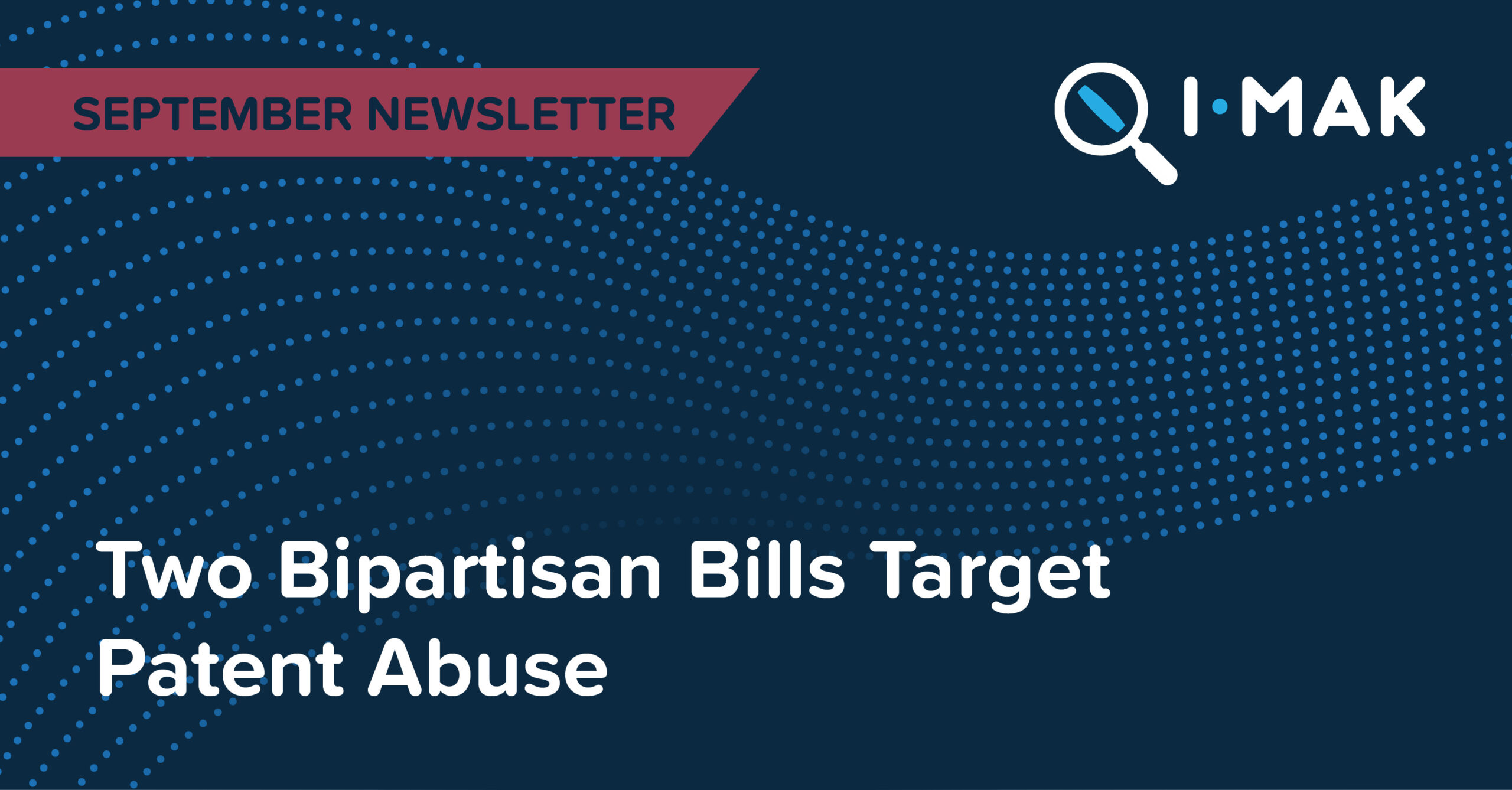In recent months, Congress introduced two bipartisan bills to address patent abuse. They focus on critical but admittedly wonky issues: terminal disclaimers and FDA/PTO interagency collaboration. Here is a brief overview of each bill, including where legislators can and should be bolder.
In July, Senators Welch, Hawley, and Klobuchar reintroduced the Bill to Address Patent Thickets as the ETHIC Act. The ETHIC Act could help make it easier for generic and biosimilar drugs to enter the market and bring down prices. Its goal is to address some of the excesses of patent thicketing by limiting the number of patents drug companies can assert in litigation to one patent per patent group connected by terminal disclaimers. A terminal disclaimer is a practice used to overcome a rejection of one’s patent application based on a finding that the application is an obvious variant of an applicant’s previous patent/application. The applicant disclaims the patent term that extends beyond that of the previous patent/application. While patents with terminal disclaimers may not extend the total duration of patent protection on a drug, drug companies use them to build patent thickets that they assert against competitors to create drawn-out legal battles that delay generic entry. By limiting the number of patents per terminally-disclaimed group a drug company can assert in litigation, the ETHIC Act could discourage companies from amassing this specific type of low-quality patent. This bill is a start, but the ultimate goal must be to prevent companies from building patent thickets in the first place by ensuring only truly deserving inventions earn a patent.
In August, Senators Hassan and Hawley reintroduced The Medication Affordability and Patent Integrity Act. The bill attempts to curb patent abuse by limiting drug companies’ ability to exploit gaps that exist between the FDA and USPTO’s oversight of their claims. Currently, drug companies will leave material that they submit to the FDA out of their patent applications because disclosure obligations at the USPTO can be narrower than what’s required by the FDA. These omissions can be strategic: the information they exclude may be relevant to whether a patent should be granted or not. The Medication Affordability and Patent Integrity Act seeks to discourage companies from doing this by requiring them to submit to the PTO “any information material to patentability” that they submit to the FDA and to “certify that they have not made inconsistent statements to the two agencies.” While it is great that legislators are trying to address an issue that I-MAK and many others have long raised, trusting companies to self-certify their compliance rather than creating regulatory mechanisms to identify and enforce it will jeopardize the effectiveness of this bill. To really empower the FDA and PTO to address manipulative behavior like inconsistent filings, both agencies need to be given a mandate to root it out.
Onwards,
Tahir
Relevant News Rundown
- Watch our latest video to learn how AbbVie used its patent thicket to pressure six generic competitors into signing settlement deals that will keep them off the market an additional six years after its top-selling cancer drug Imbruvica’s primary patent expires next year.
- Osmat Azzam Jefferson, W. Nicholson Price II, S. Sean Tu, Saurabh Vishnubhakat, and Arti Rai published an excellent piece in Nature Magazine on biologics platform patents and how they can stall/block biosimilars.
- Dongzhe Hong, S. Sean Tu, and Reed F. Beall published a new study in JAMA that looks at the cost of extended market exclusivities due to patent term extensions and patent gaming. Their findings are consistent with what I-MAK uncovered in our two recently-published reports, The Burden of Patent Thickets and Overpatented, Overpriced 2025.
- Jonathan Lee, a student at U.C. Berkeley, published a powerful indictment of America’s pharmaceutical system in the Boston Congress of Public Health Review.
